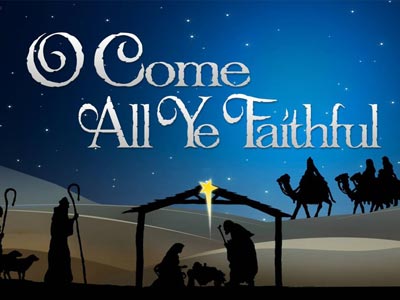-
Christ's Message To Philadelphia Series
Contributed by Freddy Fritz on Nov 28, 2017 (message contributor)
Summary: The analysis of Christ's message to Philadelphia in Revelation 3:7-13 teaches us that a church may be feeble but faithful.
Scripture
We are currently in a series of messages titled, “Christ’s Message to the Seven Churches,” that is based on the first three chapters of the Book of Revelation.
In Revelation 1 the resurrected Christ revealed himself to his Apostle John, and told him to write letters to seven churches in Asia. Today, we shall examine the sixth of those letters, and learn about Christ’s message to his church in Philadelphia.
Let’s read Christ’s message to Philadelphia in Revelation 3:7-13:
7 “To the angel of the church in Philadelphia write:
These are the words of him who is holy and true, who holds the key of David. What he opens no one can shut, and what he shuts no one can open. 8 I know your deeds. See, I have placed before you an open door that no one can shut. I know that you have little strength, yet you have kept my word and have not denied my name. 9 I will make those who are of the synagogue of Satan, who claim to be Jews though they are not, but are liars—I will make them come and fall down at your feet and acknowledge that I have loved you. 10 Since you have kept my command to endure patiently, I will also keep you from the hour of trial that is going to come on the whole world to test the inhabitants of the earth.
11 I am coming soon. Hold on to what you have, so that no one will take your crown. 12 The one who is victorious I will make a pillar in the temple of my God. Never again will they leave it. I will write on them the name of my God and the name of the city of my God, the new Jerusalem, which is coming down out of heaven from my God; and I will also write on them my new name. 13 Whoever has ears, let them hear what the Spirit says to the churches.” (Revelation 3:7-13)
Introduction
Pastor John MacArthur says that occasionally he is asked by young men seeking a church to pastor if he knows of a church without any problems. His response to them is, “If I did, I wouldn’t tell you; you’d go there and spoil it.”
His point is that there are no perfect churches. All churches have problems. There is no church that does not have any problems. The reason that all churches have problems is because they are made up of people who are all sinful. You see, as John MacArthur says, “the church is not a place for people with no weaknesses; it is a fellowship of those who are aware of their weaknesses and long for the strength and grace of God to fill their lives. It is a kind of hospital for those who know they are sick and needy.”
The church in Philadelphia had its weaknesses. They were a small, struggling church in a secular city, and yet they were faithful to Christ. Only the church in Philadelphia, along with the church in Smyrna, received no rebuke from Christ.
Lesson
The analysis of Christ’s message to Philadelphia in Revelation 3:7-13 teaches us that a church may be feeble but faithful.
Let’s use the following outline:
1. The Address (3:7a)
2. The Description (3:7b-d)
3. The Commendation (3:8-11a)
4. The Complaint
5. The Command (3:11b)
6. The Warning
7. The Promise (3:12)
8. The Appeal (3:13)
I. The Address (3:7a)
First, let’s look at the address.
Christ said in verse 7a, “And to the angel of the church in Philadelphia write. . . .” The letter was addressed to the angel, which also means “messenger.” In context of the letters, I take it to mean that each letter was addressed to the pastor of the church.
Commentator John Stott described Philadelphia as follows:
The town of Philadelphia was situated about 28 miles southeast of Sardis. It was the next town which the postman would reach on his circular tour of the seven churches of Asia. Like Sardis it was in the fertile region of Lydia and was dominated by Mount Tmolus. It stood on the banks of the River Cogamus, an insignificant tributary of the Hermus. The district was dangerously volcanic. The ancient historian Strabo called Philadelphia “a city full of earthquakes.” Earth tremors were frequent, and had caused many former inhabitants to leave the city for a safer home. The severe earthquake of A.D. 17 which devastated Sardis almost completely demolished Philadelphia.
II. The Description (3:7b-d)
Second, notice the description.
For the first time in the letters to the seven churches, Christ’s description of himself is not drawn from Revelation 1:12-17. Instead, it is drawn from the Old Testament.
First, Christ said in verse 7b, “These are the words of him who is holy and true.” God the Father is described as “holy and true” in Revelation 6:10. So, like his Father, Christ may be trusted to keep his word.

 Sermon Central
Sermon Central



